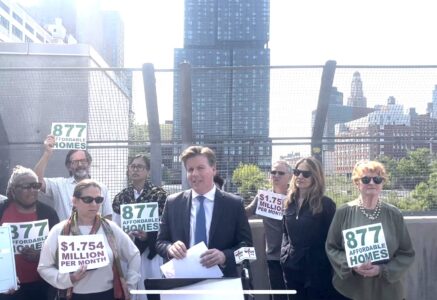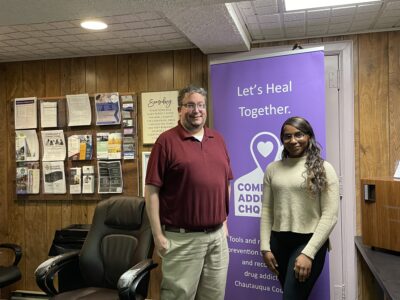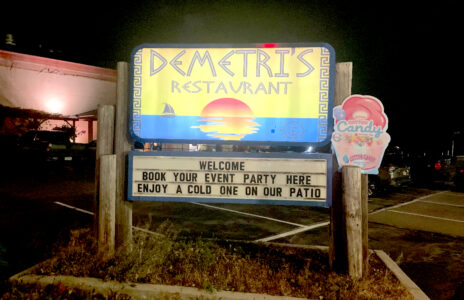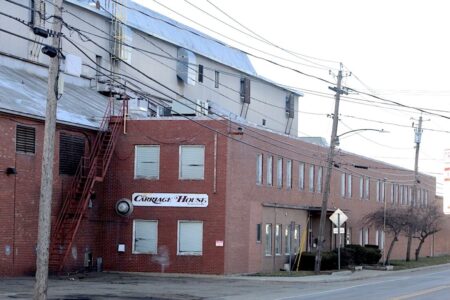Bills seek changes to mobile sports betting advertising

Assemblyman Phil Steck, D-Schenectady, speaks during a public event earlier this summer.
- Assemblyman Phil Steck, D-Schenectady, speaks during a public event earlier this summer.
- Assemblyman Robert Carroll, D-Brooklyn, is pictured speaking during a news conference this summer.
The latest proposal (A.8925) comes from Assemblyman Phil Steck, D-Schenectady, who proposes banning advertising by or on behalf of mobile sports wagering license holders during the broadcast of any live sporting event. The bill could be up for discussion when the state Legislature begins its next session in January.
Steck said in his legislative justification that sports betting advertising on television has increased from $17.6 million in 2018, the year the Supreme Court struck down the federal ban on state-authorized sports betting, to
$278.4 million in 2022. In that same timeline, Steck said, monthly calls to the National Problem Gambling Hotline increased by 124%.
“Because of the extensive proliferation of sports betting ads during live sporting events, viewers who are at risk for developing a problem gambling addiction or are struggling with a problem gambling addiction may be tempted to engage in gambling based on these advertisements,” Steck wrote. “Thus, to avoid the temptation, they have to limit the amount of live sports they watch. To address this issue, this legislation will ban all mobile sports wagering advertisements during live sports.”
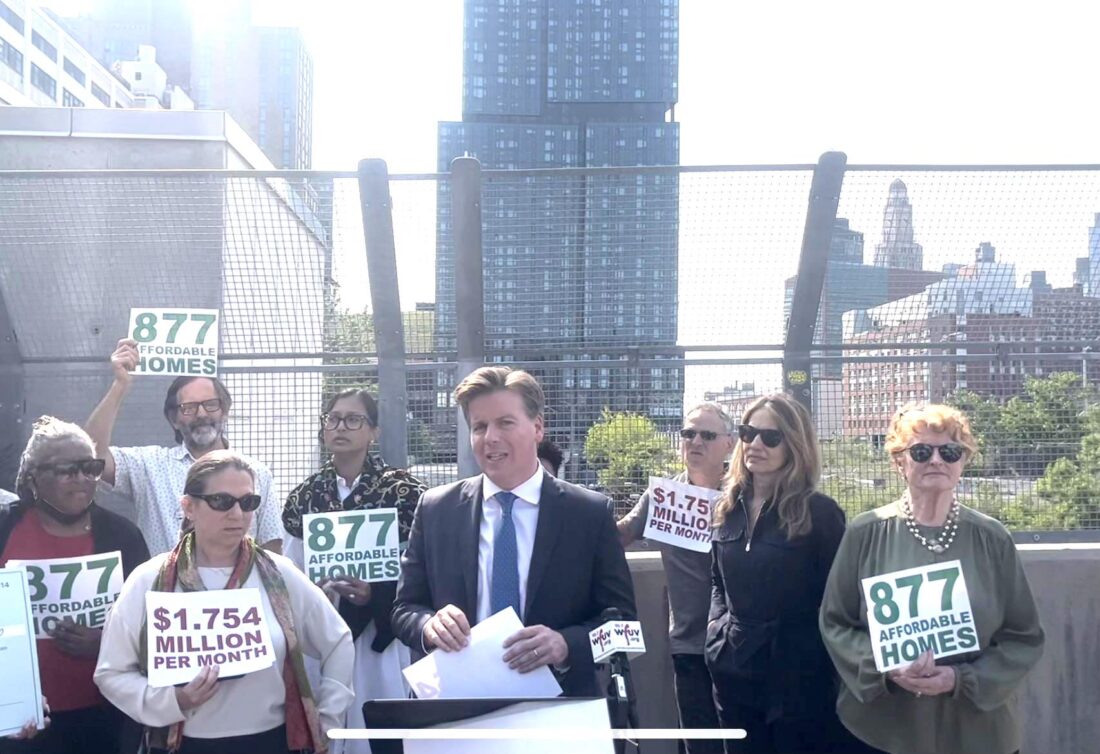
Assemblyman Robert Carroll, D-Brooklyn, is pictured speaking during a news conference this summer.
Assemblyman Robert Carroll, D-Brooklyn, introduced his own bill (A.7962) earlier this year that includes its own version of a ban on advertising during live sports events by banning advertising between 8 a.m. and 10 p.m. and during live sports events. Carroll’s bill also includes a limit on wagers by an individual of $5,000 during a 24-hour period and prohibits advertising practices including “odds boosts” and promotions designed to induce
gambling through “bonus bets” and “no sweat bets.” Bettors would also no longer be allowed to place more than five deposits during a 24-hour period while mobile sports betting operators would face limits regarding targeting minors and prohibitions on providing information on placing sports wagers. The bill didn’t make it out of committee during the 2025 legislative session but could be up for discussion in 2026.
Carroll’s limits on the number of bets allowed over a 24-hour period is the subject of another piece of legislation Steck recently introduced (A.8928). Steck cited a 2021 study published in the Journal of Behavioral Addictions examining the behavior of 32,262 gamblers who subscribed to bwin, a European sports betting platform accessed by those worldwide, including in the United States through a Virtual Private Network (VPN). Among the gambling types offered on this platform is sports betting. The study found that the average frequency of bets placed per day was 4.37 – a number Steck said meant placing a cap on the number of bets a day shouldn’t affect the average sports bettor.
Carroll said the National Council on Sports Gambling reports 2.5 million adults in the U.S. meet the criteria of having a severe gambling problem while another 5 million to 8 million people are considered to have mild or moderate gambling problems. The American Psychiatric Association reports that 1 in 5 individuals with a gambling
addiction will attempt suicide, the highest of any mental health disorder. A study out of the University of California found that in the 38 states with legal online sports betting the odds of bankruptcy filing in states with legal online betting increased by as much as 25-30% since legalization.
In October Gov. Kathy Hochul signed legislation (S.1550/A.1118) requiring all advertisements for gambling and sports betting to include warnings about the potential harmful and addictive effects of gambling. The previous law states that each advertisement must clearly and conspicuously post a problem gambling hotline number.
“Protecting New Yorkers from the dangerous and addictive effects of problem gambling and sports betting is vitally important for the prosperity of our great state,” Hochul said. “I want New Yorkers to be able to safely enjoy the activities they love, while proceeding with caution when necessary. I’m confident that with the signing of this new bill, New Yorkers will have easier access to the safety resources they need to better protect themselves from the grips of addiction.”
Individuals seeking help for problem gambling have a number of options to find help in New York State, including inpatient, outpatient, residential programs and recovery supports, through a robust system of certified providers, State-operated treatment services, and a strong private practitioner network. Regional Problem Gambling Resource Centers, which are funded by OASAS and operated by the New York Council on Problem Gambling, can provide resources including information, training, and connections to help. These centers are available in every region of the state.


